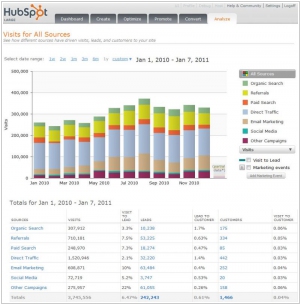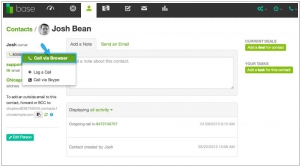HubSpot vs Zendesk Sell
August 20, 2023 | Author: Sandeep Sharma
HubSpot and Zendesk Sell are both popular customer relationship management (CRM) platforms, but they have key differences. HubSpot is a comprehensive inbound marketing and sales software platform that offers a range of CRM features. It focuses on inbound marketing strategies, lead generation, email marketing, social media management, customer support, and sales automation. HubSpot provides an all-in-one solution for managing customer interactions throughout the entire customer lifecycle.
Zendesk Sell, formerly known as Base CRM, is a sales-focused CRM platform that emphasizes sales pipeline management, contact management, deal tracking, and reporting. It offers features such as lead scoring, sales analytics, email integration, and mobile access. Zendesk Sell aims to streamline sales processes and provide sales teams with the tools they need to close deals effectively.
See also: Top 10 Online CRM software
Zendesk Sell, formerly known as Base CRM, is a sales-focused CRM platform that emphasizes sales pipeline management, contact management, deal tracking, and reporting. It offers features such as lead scoring, sales analytics, email integration, and mobile access. Zendesk Sell aims to streamline sales processes and provide sales teams with the tools they need to close deals effectively.
See also: Top 10 Online CRM software
HubSpot vs Zendesk Sell in our news:
2023. HubSpot unveils strategy to integrate AI across the platform
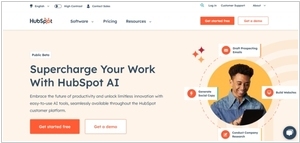
HubSpot, the marketing and CRM platform, has unveiled its comprehensive AI strategy known as HubSpot AI. While the incorporation of AI elements has been an ongoing effort for HubSpot and other enterprise SaaS vendors, the advent of technologies like ChatGPT has prompted HubSpot to adopt a more extensive approach while retaining earlier features. The CRM database stores valuable company data, enabling users to gain insights into customer profiles, encompassing basic information, purchase history, customer service interactions, and more. HubSpot AI encompasses a four-pronged strategy, starting with content assistants that assist users in generating various content types across the platform. Additionally, AI agents, currently in different development stages, aim to automate customer service tasks and answer queries. The third component, AI Insights, provides predictive analytics, such as identifying customers likely to churn or make a purchase, a capability integrated into the platform over time.
2020. HubSpot’s new end-to-end sales hub aims to simplify CRM for mid-market customers
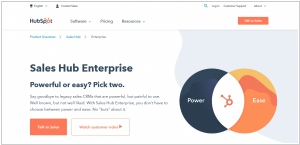
HubSpot, renowned for its role in shaping the concept of inbound marketing, has unveiled the HubSpot Sales Hub Enterprise. While the company has been providing a CRM tool for five years, which has successfully addressed the usability concerns of salespeople, the new offering aims to deliver a comprehensive approach that caters to the needs of not only sales professionals but also management and system administrators. HubSpot recognizes that larger players in the industry, such as Adobe, Salesforce, and SAP, typically acquire various components of the technology stack and integrate them into their solutions, or customers themselves piece together different elements. In contrast, HubSpot believes that developing a unified, integrated solution in-house will naturally result in a more user-friendly experience.
2020. HubSpot unveils new content management system for marketers
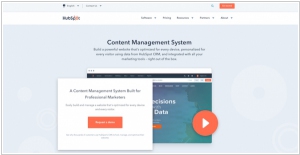
HubSpot, a renowned inbound marketing firm, has introduced a dedicated content management system (CMS) specifically designed to simplify the process of adding and updating content for marketing professionals. While content management has always been a fundamental aspect of HubSpot's offerings, this new CMS has been developed from scratch with marketers in mind. It provides developers with the flexibility to use their preferred programming languages while leveraging the modular structure of the HubSpot CMS. Simultaneously, the user-friendly interface empowers marketers to make frequent changes necessary for modern websites.
2020. Zendesk launches app marketplace for its CRM
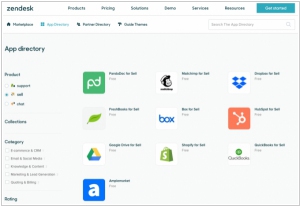
In 2018, Zendesk acquired Base CRM and subsequently rebranded it as Zendesk Sell. Now, the company is introducing Zendesk Marketplace for Sell, an app store specifically designed for this CRM product. The marketplace serves as a platform where organizations can share components that enhance the capabilities of the core Sell product. Notably, prominent companies like MailChimp, HubSpot, and QuickBooks are already available on the platform. Initially, customers have the ability to develop private apps utilizing a new application development framework. This empowers them to personalize Sell according to their specific requirements, whether it involves integrating with an internal system or creating unique functionality. Moreover, independent software vendors (ISVs) can develop custom apps, a practice that has already been prevalent within the Zendesk ecosystem for some time, particularly in the realm of customer support.
2018. Zendesk acquired Base CRM
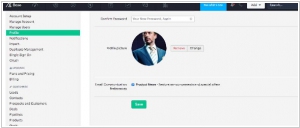
Zendesk, a customer service software company, has recently acquired the startup Base, which specializes in providing CRM solutions for small businesses. Although Base may not have the same level of recognition as CRM giants like Salesforce, Microsoft, or Oracle, it has developed an advanced sales force automation platform infused with its own artificial intelligence capabilities. By integrating Base's capabilities, Zendesk will now have an additional crucial component, alongside customer service and marketing, to complete its core offering of customer data management. Established in 2009, Base has amassed over 5,000 customers. It's important to note that Base was already available for sale in Zendesk's app marketplace, resulting in some overlap. However, Zendesk plans to transition existing customers to Base while ensuring ongoing support for all Base customers.
2018. HubSpot added customer service tools to its marketing platform
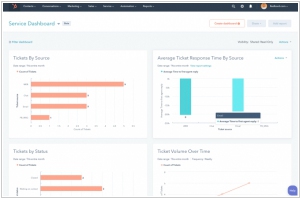
HubSpot is venturing beyond sales and marketing by officially introducing its Service Hub, a comprehensive solution for managing customer service. This expansion includes an all-in-one inbox for organizing all customer communications, a bot-builder to automate certain customer interactions, features for developing a company knowledge base (which can be utilized by the bot-builder), survey creation tools, and a dashboard for monitoring the performance of your service team. Service Hub is seamlessly integrated with HubSpot's existing products, enabling businesses to track customer interactions across sales, marketing, and support.
2017. HubSpot unveiled Conversations
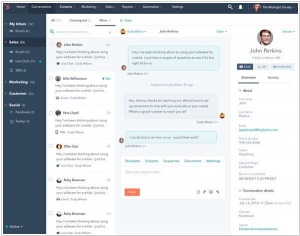
CRM, marketing, sales, and customer experience provider HubSpot has introduced a range of product updates, including notable integrations with Facebook for advertising purposes, Shopify for ecommerce functionalities, and the introduction of a new tool called "Conversations." The Conversations tool, facilitated by chatbots, consolidates customer messages into a single inbox, representing the evolution of HubSpot's live chat platform. This unified messaging system becomes crucial during significant transitions, such as the handoff from sales to support. Key features of Conversations include seamless integration with HubSpot CRM and the ability to create chatbots, leveraging the technology obtained from HubSpot's recent acquisition of the chatbot platform, Motion AI. These updates aim to enhance customer interactions and streamline communication processes within the HubSpot platform.
2017. Marketing platform HubSpot acquires AI startup Kemvi
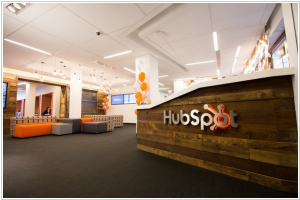
Inbound marketing and sales platform HubSpot has made an acquisition of Kemvi, a startup that utilizes artificial intelligence and machine learning to assist sales teams. A short while ago, Kemvi introduced DeepGraph, a product that examines public data to enable salespeople in identifying the optimal time (such as after a job transition or the release of an article) to connect with potential customers. Additionally, it takes proactive measures to verify leads. HubSpot was actively seeking innovative ways to incorporate AI technology into its platform as a means to combat competitors. The acquisition of Kemvi was especially attractive to HubSpot due to its ability to address a genuine requirement among salespeople.
2015. HubSpot launches own CRM system
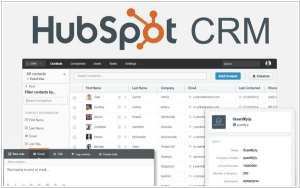
HubSpot, a renowned company recognized for its marketing tools, has officially launched its CRM product, moving it out of the beta phase. The CRM tool is available for free, while HubSpot's sales "acceleration" tool, Sidekick, is priced at $50 per seat per month. HubSpot describes the CRM tool as designed to assist sales representatives in minimizing the tedious aspects of data entry and interaction management. The tool automatically captures data from the sales process and organizes it in a chronological format. This strategy of providing free software to companies and subsequently upselling their IT departments has proven successful for software companies like Dropbox and Box. Although there are still costs associated with the sales process, having products integrated into more businesses helps reduce certain barriers.
2014. Base CRM takes on Salesforce, SAP and Microsoft with new features
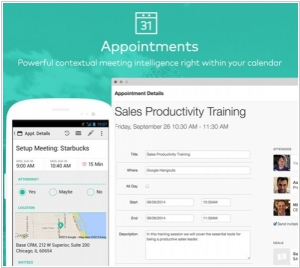
Base CRM is poised to challenge industry giants such as Salesforce, Microsoft Dynamics, and SAP with its latest feature release. The new features encompass a range of capabilities, including instant real-time notifications, appointments for seamless scheduling, invitations, and tracking of meeting history across devices (phones, tablets, computers), first action reports that provide insights into deal-winning probabilities based on email and voice communication history analyzed through Base's robust big data stack, a consolidated rep performance dashboard, and a stage duration analysis report that examines the speed at which deals progress through the sales pipeline, predicting the likelihood of success based on their progression. Base currently offers three product tiers: Base Starter Edition, Base Professional Edition, and Base Enterprise Edition, with pricing starting at $15 per user per month.

